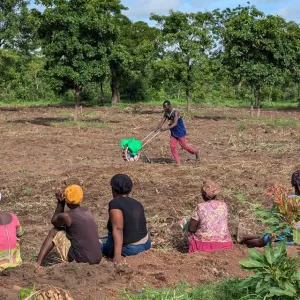Establishing Demonstration Farms in Ghana: Learning, Observation and Discussion Among Smallholder Farmers
These farms were designed not just to introduce innovative techniques but to empower local farmers by showing them the tangible benefits of adopting new, climate-smart practices. By combining local knowledge with new technologies, these demonstration farms are helping to improve farming in the Upper West region, offering hope for improved food security and livelihoods. Climate-Smart Improved Seed Varieties The demonstration

Establishing Demonstration Farms in Ghana: Learning, Observation and Discussion Among Smallholder Farmers
These farms were designed not just to introduce innovative techniques but to empower local farmers by showing them the tangible benefits of adopting new, climate-smart practices. By combining local knowledge with new technologies, these demonstration farms are helping to improve farming in the Upper West region, offering hope for improved food security and livelihoods.
Climate-Smart Improved Seed Varieties
The demonstration plots used a climate-smart maize hybrid variety known as Wang-Basig, which is early maturing, high yielding, and tolerant to drought and Striga. This variety was sown in the demonstration plots while farmers sowed their saved seeds on their plots. For intercrop plots, Padi-Tuya cowpea was also planted. This variety is particularly advantageous for its cover-cropping characteristics, which are essential for soil moisture conservation. Additionally, Padi-Tuya is well-suited for fodder use due to its high biomass production.

